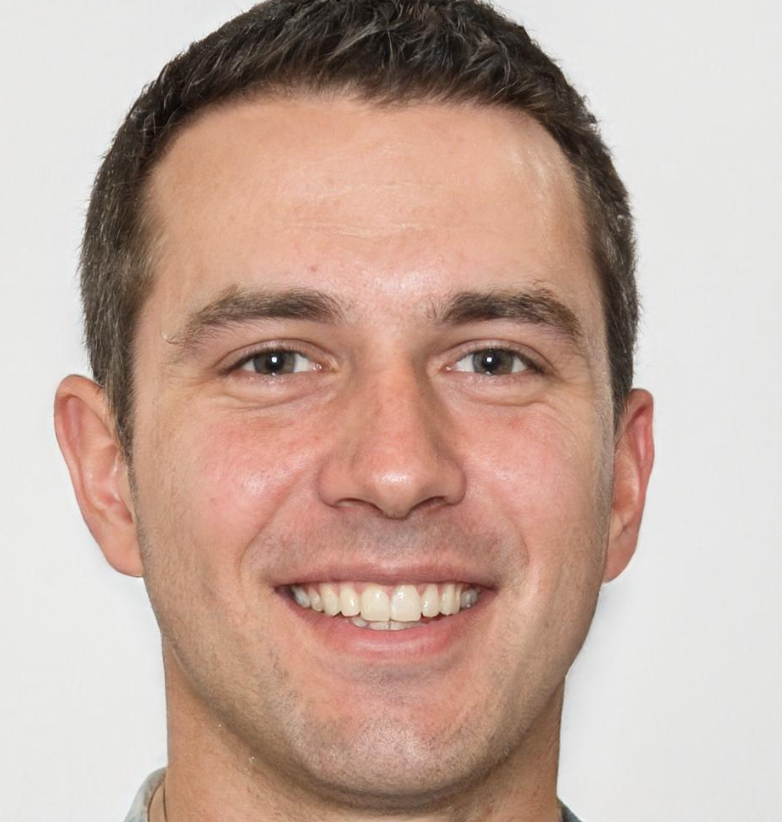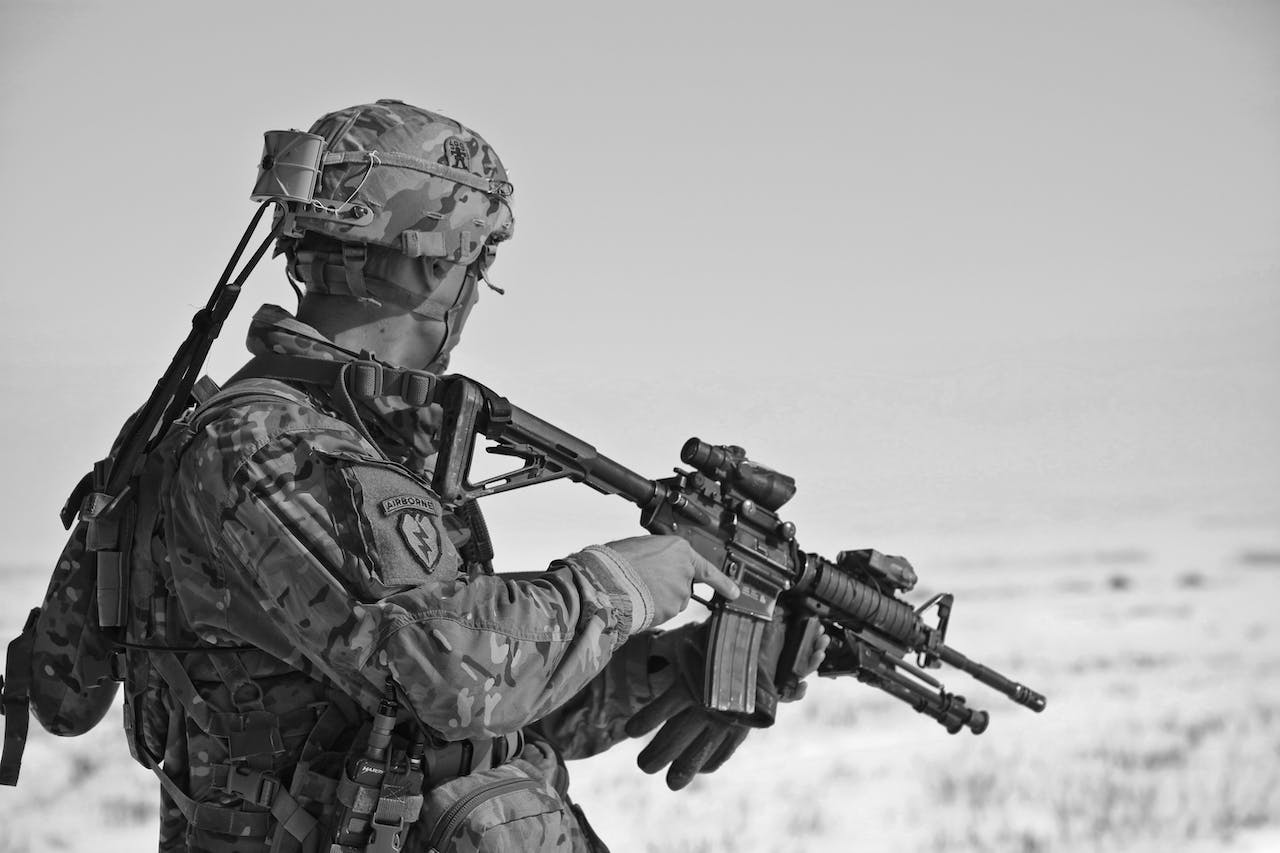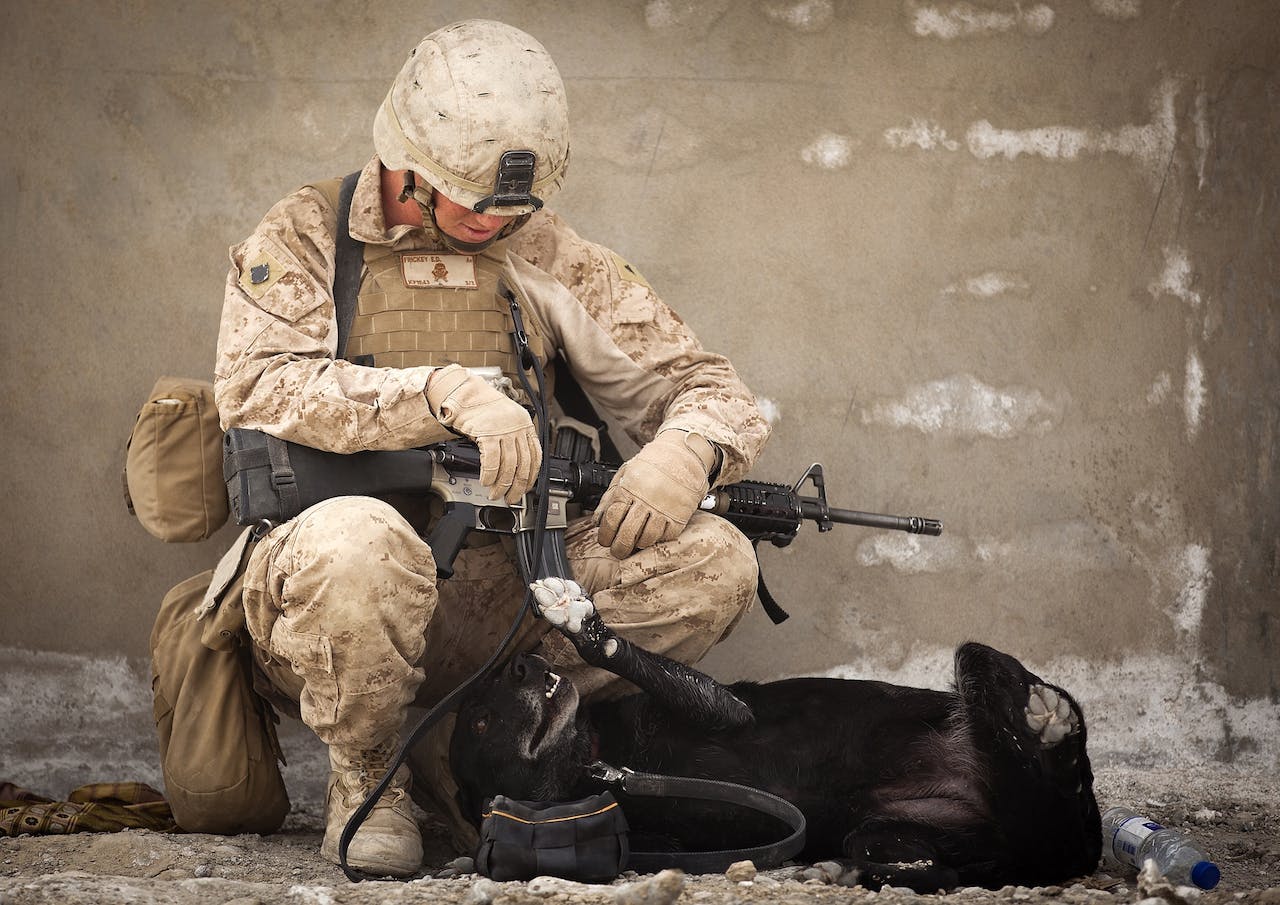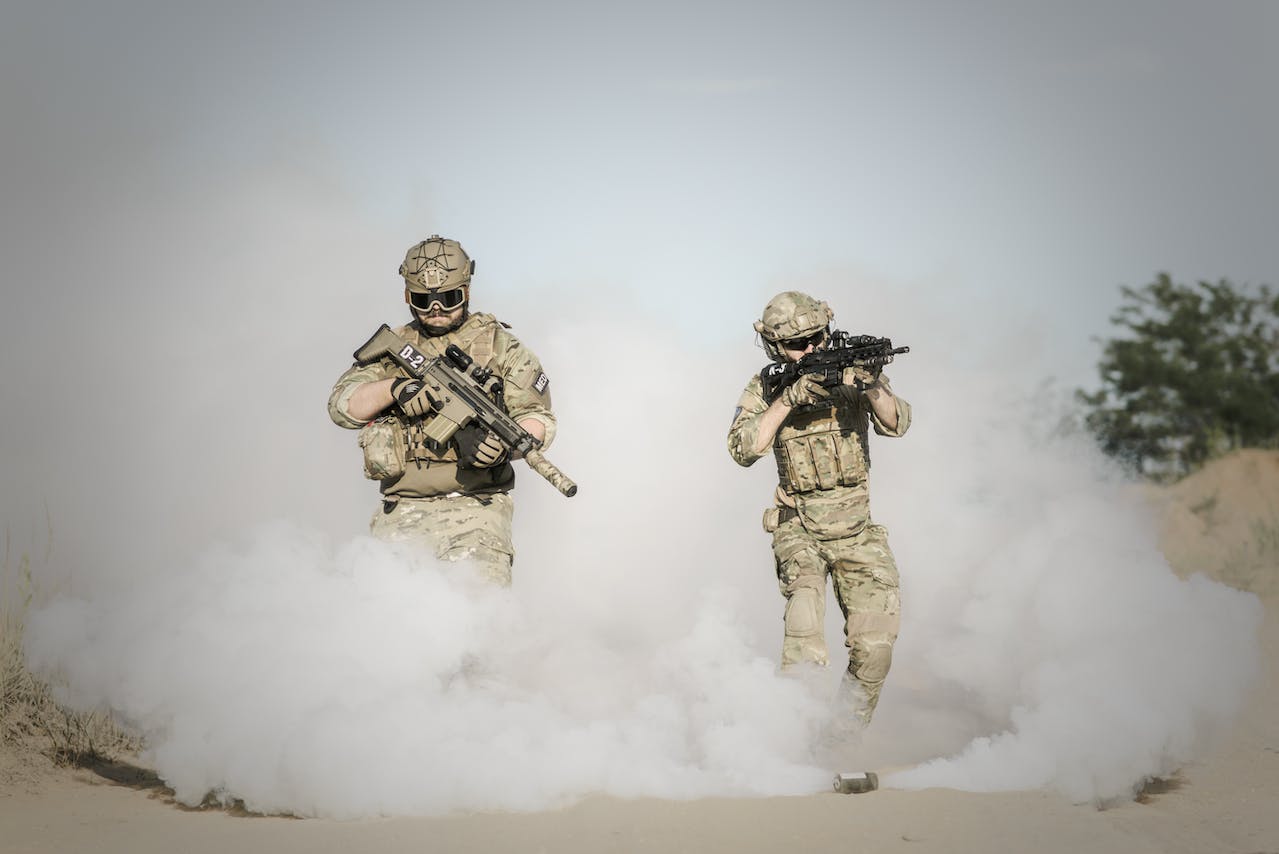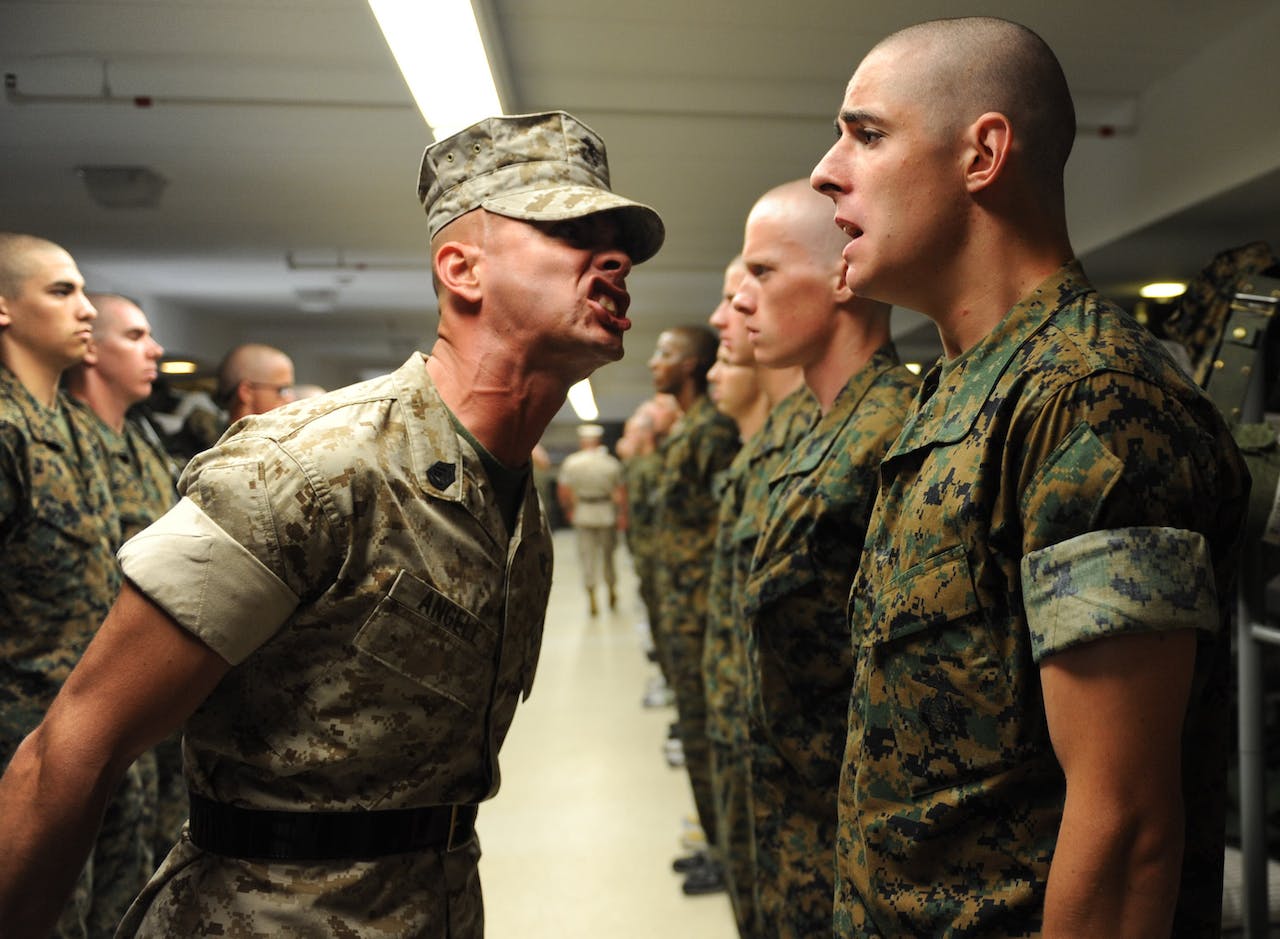
Staying awake is an essential need in the demanding world of military operations, not just a convenience. Around the world, military personnel are faced with difficult situations that need constant attention and are frequently in the most challenging circumstances possible.
The military has an unwavering requirement for awareness due to several factors, such as nighttime darkness, extended operations that exhaust them relentlessly, and the ever-present possibility of danger. This article explores the tactics and military tricks to stay awakeused by military experts to withstand the allure of sleep.
In the military services, keeping awake is an art form, from long, arduous training exercises to clandestine missions far behind enemy lines. These strategies defy common sense and include a variety of methods and resources that have been meticulously refined over years of practice.
Understanding The Importance Of Staying Awake
The importance of staying awake cannot be overstated in our modern, fast-paced lives. It is the linchpin of maintaining optimal performance in our daily activities, regardless of our roles and responsibilities. For students, staying awake in lectures is paramount for absorbing knowledge and excelling academically.
Employees rely on sustained alertness to meet deadlines, enhance job performance, and contribute positively to their workplaces. Parents, often faced with the demanding task of juggling multiple responsibilities, depend on wakefulness to provide care and guidance to their children effectively.
When we are awake and alert, our cognitive functions operate at their zenith. Our ability to make informed decisions is heightened, enabling us to navigate complex situations with clarity and confidence. Furthermore, our problem-solving skills are sharpened, allowing us to tackle challenges efficiently and creatively.
In essence, alertness serves as the catalyst that empowers us to engage meaningfully in our tasks and responsibilities, ultimately leading to personal growth, professional success, and an enriched quality of life.
Why Is It Important To Stay Awake In The Military?
In the high-stakes realm of military operations, remaining awake frequently means the difference between life and death. Military personnel must remain awake in these situations since it directly affects their efficacy, safety, and success.
Mission Success
Mission success is one of the main reasons that remaining awake is crucial in military conditions. Whether conducting an undercover operation, conducting surveillance, or engaging in battle, military personnel need to maintain vigilance in order to achieve their goals. Being alert guarantees that soldiers can respond swiftly to evolving circumstances, adjust to unanticipated obstacles, and make wise choices during intense combat.
Personal Safety
The military works in a variety of challenging locations, from impenetrable rainforests to hot deserts. The lives of troops and their allies are put in danger by fatigue and sleepiness, which can cause mistakes, accidents, and impaired judgment.
Reducing the chance of accidents and ensuring that people can carry out their tasks with attention and accuracy are two ways that being awake contributes to personal safety.
Team Cohesion
In the military, cooperation is essential. Team members who stay awake and attentive communicate and work together more effectively. A soldier who is sleep-deprived may find it difficult to communicate ideas clearly, react quickly to orders, or encourage other soldiers.
On the other hand, a team that is rested and vigilant may work together more effectively, improving their chances of completing their task and making it back home without incident.
Counteracting The Enemy
Military personnel frequently find themselves in scenarios where they have to outwit and outmaneuver their adversaries.
Soldiers who can stay awake have an advantage over their opponents because it lets them keep a tactical advantage, predict enemy actions, and take advantage of weaknesses. Soldiers are at a disadvantage while dealing with crafty foes due to fatigue's ability to impair cognitive functions and response speeds.
Being vigilant is not only a luxury in military operations; it is a strategic requirement. Beyond just being comfortable, remaining awake during military operations is crucial for collaboration, mission accomplishment, personal safety, and outwitting the opposition.
Because they know that their lives and the success of their missions depend on their capacity to stay awake and aware in the most trying situations, military personnel undergo intense training to overcome sleep deprivation and maintain their vigilance.
Military-Tested Strategies To Stay Awake
Let There Be Light
In response to the onset of darkness, your body begins to secrete the hormone melatonin, which is responsible for inducing sleepiness. Keeping it light will give your body the impression that it is daytime, which will assist in reversing the usual sleep patterns that you have been experiencing.
The participants in a research conducted in 2001 on people who worked night shifts discovered that they were able to reset their circadian rhythms by changing the lights in their homes.
During the night, you can utilize lamps that are equipped with brilliant LED bulbs. These light bulbs can produce a daylight effect, which may assist you in remaining alert.
Pain
When you are on post, there is nothing more frustrating than falling asleep. As a matter of fact, if you are discovered napping, it becomes a serious infraction. The release of adrenaline into the bloodstream is a natural process that the human body uses to rejuvenate itself.
You are able to achieve this by pinching yourself, or if that does not work, you may try giving yourself a little tap on the cheek. It appears to be excessive, but it has the potential to save not just your life but also the lives of your fellow soldiers.
Drink Water
Once more, we do this to keep ourselves awake during dull courses, and it is also effective while we are on guard duty with people. Additionally, it helps to reset your brain in the event that you are close to go asleep and keeps your mind active while you are drinking.
Drink Some Caffeine
Coffee appears to be one of the only rations that the military never seems to run out of. One of the ways that caffeine acts as a stimulant is by inhibiting the action of adenosine, which is a naturally occurring molecule in the body that causes one to feel sleepy.
Caffeine, in addition to increasing alertness, has been shown to increase focus, reaction speeds, learning, and memory, all of which may be beneficial when one is trying to drag themselves through an all-nighter.
It is possible to find caffeine in beverages such as coffee, tea, energy drinks, and even some soft drinks. If you want to get the full advantages of caffeine, it is best to consume it in tiny doses over a few hours rather than consuming a huge quantity all at once.
In twenty-four hours, it is deemed safe for the majority of individuals to consume up to four hundred milligrams of caffeine. A quantity comparable to this may be found in around three cups of coffee. It is possible to overdose on caffeine if you drink an excessive amount of it; thus, it is essential to keep track of how much caffeine you eat.
Additionally, the amount of caffeine that may be found in different brands can vary greatly. Therefore, it is essential to constantly read the labels and exercise caution when combining different sources of caffeine.
Switch Out With A Battle Buddy
It is recommended that guard shifts be performed in pairs, provided that there is sufficient manpower. This allows one soldier to keep the other soldier awake, or at the very least, provides someone to trade places with as necessary.
It is much better if you are able to offset the two soldiers by an hour so that one of them is always fresher than the other (for example, having each soldier work a shift that lasts for two hours). For the sake of maintaining a high level of concentrated observation, the scouts will rotate between observing an NAI every fifteen minutes.
Military Techniques Of Controlled Breathing For Staying Awake In The
Maintaining consciousness throughout protracted and demanding military operations is critical to mission accomplishment and crew safety. Controlled breathing exercises are a potent weapon in the armory of military soldiers fighting sleep deprivation. The military has modified and improved these age-old methods to assist soldiers in maintaining their attention and alertness under pressure.
The Science Behind Controlled Breathing
The foundation of controlled breathing methods is the idea that our breathing patterns have a profound effect on both our physical and mental health. These methods seek to maximize oxygen intake, minimize stress, and improve brain clarity in relation to staying awake.
Box Breathing - A Tactical Breathing Technique
"Box breathing" is one of the most often utilized regulated breathing methods in the armed forces. This straightforward yet efficient method consists of four equal phases;
- Inhale (4 seconds) - Start by filling your lungs with a slow, deep inhale through your nose while counting to four.
- Hold (4 seconds) - Hold your breath for an additional four counts after taking a breath. This process lets your blood get saturated with oxygen.
- Exhale (4 seconds)- Once more, counting to four, gently release the air through your lips. Tension is reduced with this deliberate exhale.
- Hold (4 seconds)- Take a last four-count pause after exhaling before starting the cycle again.
The Advantages Of Box Breathing
Box breathing helps military troops remain alert during crucial operations in several ways;
- Tension Reduction - Box breathing works to lower tension and anxiety by activating the parasympathetic nervous system through breath regulation.
- Enhanced Focus- By improving focus and mental clarity, the approach helps troops make better judgments.
- Enhanced Oxygenation- Regulated breathing guarantees effective lung oxygen exchange, giving the body and brain the oxygen they require to remain awake.
In high-stress situations, military personnel frequently employ regulated breathing methods. Box breathing and related tactics assist soldiers in staying calm and alert during close-quarters combat, sniper missions, and spy operations.
To prevent sleep deprivation and maintain consciousness during crucial missions, the military has access to several helpful equipment, including controlled breathing methods.
Soldiers may improve oxygen intake, concentrate, and lower stress levels by using their breath. Learning to breathe under control is a skill that may make all the difference on the battlefield when it comes to the unwavering pursuit of mission accomplishment.
Psychological Strategies Employed By The Military For Staying Awake
Remaining awake and vigilant is crucial in the demanding realm of military operations, where instantaneous judgments may determine the difference between success and failure. Psychological techniques are essential for combating sleep deprivation and sustaining optimal performance in complex situations for military personnel.
Meditation And Mindfulness
The military has come to recognize the benefits of mindfulness and meditation practices in reducing combat weariness and mental abrasion. These techniques entail developing an inner calm, paying attention to the here and now, and recognizing thoughts and feelings without passing judgment.
Military soldiers receive mindfulness training to help them cope with stress and remain alert on long operations. Through the reduction of tension and encouragement of relaxation, these techniques help troops stay mentally and emotionally stable even under stressful conditions.
Cognitive Enhancement Techniques
Techniques for improving cognitive function aim to counteract the negative effects of sleep loss and improve mental clarity. These tactics include cognitive training programs that test troops' cognitive capacities, memory exercises, and problem-solving activities.
Military soldiers can improve their cognitive resilience and maintain mental acuity despite sleep deficiencies by routinely participating in these exercises. During operations, this is essential for keeping situational awareness, responding quickly, and adjusting to rapidly changing circumstances.
Positive Thinking And Mental Toughness
Mental toughness, or having a never-give-up mentality and a positive outlook, is highly valued in the military. Soldiers receive training on how to change their negative mindset, make reasonable goals, and stay motivated in the face of difficulty.
Resilience and determination are fostered by positive thinking, which also helps counteract the mental exhaustion brought on by sleep deprivation. In the most trying circumstances, soldiers who have faith in their capacity to overcome obstacles are more likely to remain alert, focused, and persistent.
Short Breaks And Cognitive Rest
Even in the middle of heavy activities, military personnel are educated to understand the value of cognitive rest and the necessity of brief breaks. By taking these little breaks, warriors may mentally recover and reorganize, avoiding cognitive exhaustion.
Soldiers may practice deep breathing and relaxation techniques or just take a few minutes to themselves during these pauses. By preventing mental weariness, these techniques enable troops to retain their cognitive function for extended periods.
Role Of Mental Health Professionals
The importance of mental health specialists in assisting soldiers with the psychological difficulties of remaining awake throughout extended operations is being acknowledged by military organizations more and more. When the chance arises, mental health specialists offer counseling, stress-reduction methods, and approaches to enhance the quality of sleep.
Mental health specialists improve the general well-being of military soldiers and improve their capacity to stay awake and perform at their best by treating the psychological components of exhaustion and sleep deprivation.
Frequently Asked Questions
Why Are Power Naps Valuable For Military Personnel Staying Awake?
Power naps of 20-30 minutes provide a quick energy boost and improve alertness without causing grogginess.
What Is The Role Of Wearable Devices In Monitoring Fatigue And Staying Awake In The Military?
Wearable devices offer real-time data on fatigue levels, enabling soldiers to adjust their tactics for staying awake.
Why Is Emotional Stability Important For Military Personnel To Stay Awake During Missions?
Emotional stability helps soldiers maintain composure, teamwork, and effective communication, which are essential in high-pressure military situations.
Conclusion
The array of strategies and military tricks to stay awake during critical operations is a testament to the unwavering dedication of military personnel to their missions. These tactics encompass physical, psychological, and tactical approaches, all aimed at mitigating the debilitating effects of sleep deprivation.
Whether through controlled breathing, caffeine optimization, or mindfulness techniques, these strategies empower soldiers to maintain vigilance, adaptability, and peak performance in the face of relentless challenges. The military's commitment to optimizing wakefulness is not just a tactical necessity but a vital element in ensuring the safety and success of missions.
